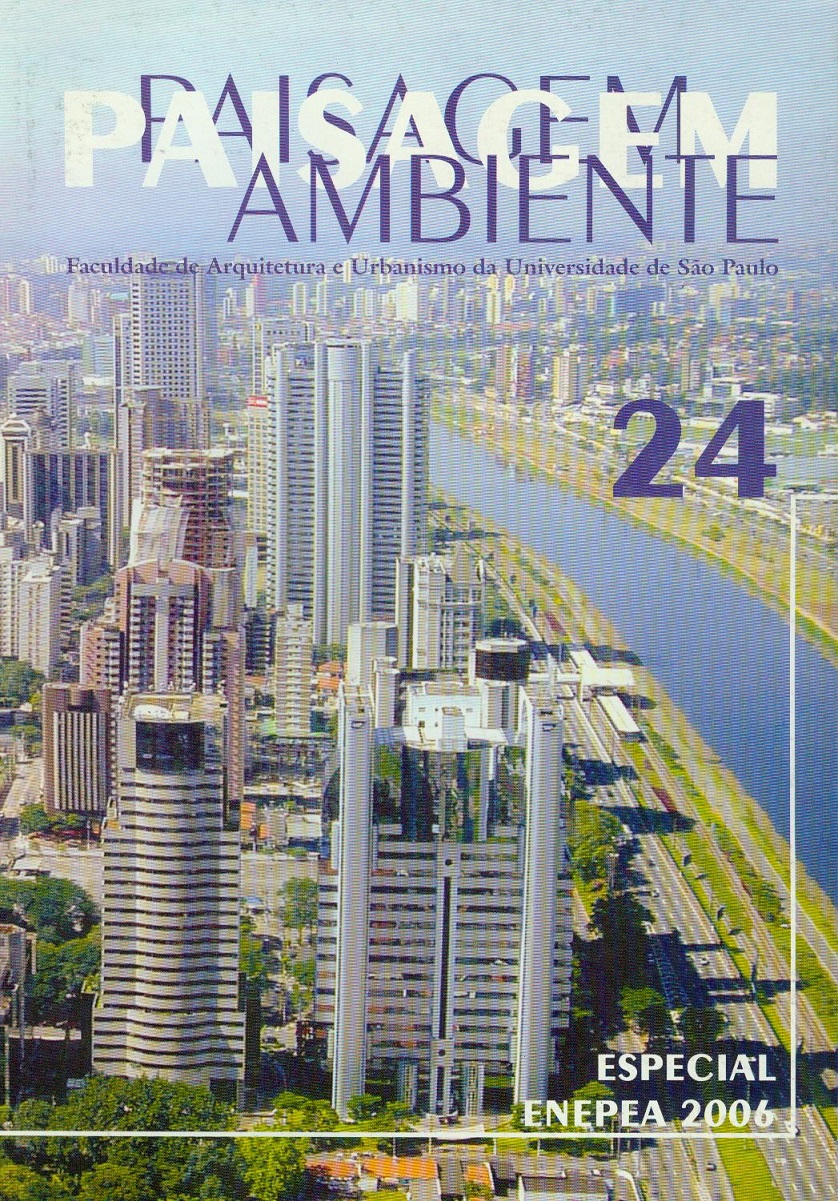Espaços corporativos e apropriação: novas áreas livres na metrópole paulistana
DOI:
https://doi.org/10.11606/issn.2359-5361.v0i24p259-266Keywords:
Corporative spaces. Appropriation. Post-modernism. Environmental psychology. Corporative spaces. Appropriation. Post-modernism. Environmental psychology.Abstract
The chaotic growth of great urban centers implies in an increasing demand for open spaces as well, important factor in the population’s quality of life. Until the end of modernism, public power was traditionally responsible for the management of open spaces in cities. However, in the context of the contemporary metropolis’ socio-economic and cultural scenery there is not a clear distinction between the roles of each agent in the construction of open spaces; neither a clear definition of public space itself. Nowadays, public and private initiatives share space in building and managing open spaces offered to the citizens. It’s important to reflect over the role that each agent holds. Where public administration stands in the negotiations with private interests? In São Paulo9 the largest Brazilian metropolis) can be found countless examples of this phenomenon in urban spaces: the plaza of the Brascan Century Plaza in Itaim, the pocket park on Amauri Street (awarded in the last Bienal de Arquitetura de São Paulo), Centro Empresarial Itaúsa, or the plaza around the Cetenco Plaza complex buildings, on Paulista Avenue. What leads people to enjoy a space the way they do? Why some corporative spaces have vitality that many public spaces don’t? These questions may contribute to the debate over the quality of open spaces in contemporary cities and even over the importance that they hold to society. The comprehension of a post-modern scenery and the approach of sociological and psychological issues are very relevant to the presented debate.Downloads
Download data is not yet available.
Downloads
Published
2007-12-31
Issue
Section
ENEPEA
License

A revista Paisagem e Ambiente: ensaios tem licença Creative Commons
Creative Commons - Atribuição-NãoComercial-CompartilhaIgual 4.0 Internacional
DIADORIM - Diretório de Políticas Editoriais
O detentor dos direitos autorais é o autor do artigo. A revista exige apenas o ineditismo na publicação do artigo. O autor tem do direito de divulgar seu artigo conforme sua conveniência.
How to Cite
Sato, M. Y. (2007). Espaços corporativos e apropriação: novas áreas livres na metrópole paulistana. Paisagem E Ambiente, 24, 259-266. https://doi.org/10.11606/issn.2359-5361.v0i24p259-266


